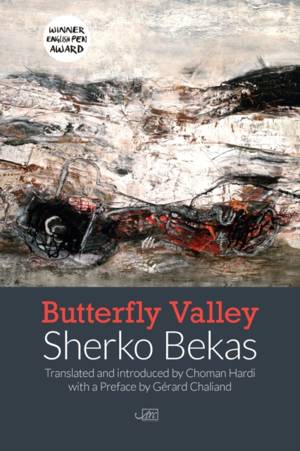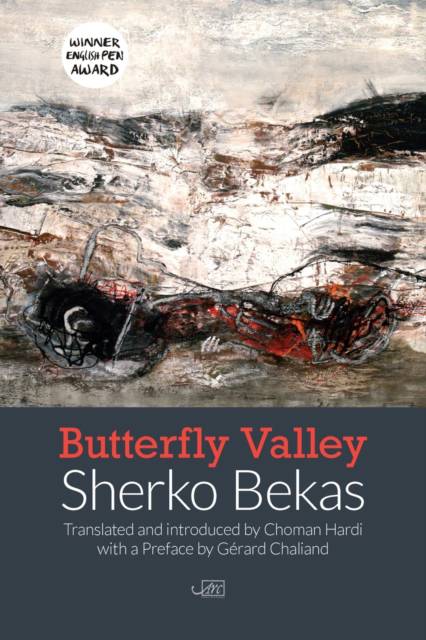
- Retrait gratuit dans votre magasin Club
- 7.000.000 titres dans notre catalogue
- Payer en toute sécurité
- Toujours un magasin près de chez vous
- Retrait gratuit dans votre magasin Club
- 7.000.0000 titres dans notre catalogue
- Payer en toute sécurité
- Toujours un magasin près de chez vous
Description
The late 1980s witnessed two devastating chemical attacks by the Saddam régime on Iraqi Kurdistan. The first of these, in 1988, known as the Anfal campaign, saw the destruction of 3000 Kurdish villages, over 40 chemical attacks launched, and 100,000 civilians buried in mass graces, with hundreds more dying of exposure to chemical weapons. The second attack was on the town of Halabja where over 5000 people died instantly. Thousands of people who had survived the attacks in both Anfal and Halabja but had been mildly affected by the gas later died from cancer and other diseases.
Butterfly Valley is Sherko Bekes' response to these atrocities. Stunned by the world's silence in the face of this genocide, Bekes - in exile in Sweden at the time - longs to go home and mourn the victims. He laments the repetitive cycles of continuous oppression and suppressed revolutions in Kurdish history, and in his despair speaks to other exiled Kurdish poets (Nali, Hani and Mawlawi among them) from the sixteenth century to the present day. This long poem unfolds in beautifully-drawn images of the poet's homeland - mountains and forests, rivers and villages, meadows and flowers - which are juxtaposed with scenes of death, destruction and suffering. This is an immensely powerful poem, at once lyrical and heart-rending, and Choman Hardi's fine translation at last gives the English-speaking reader the most extensive example yet of his outstanding writing.
Spécifications
Parties prenantes
- Auteur(s) :
- Traducteur(s):
- Editeur:
Contenu
- Nombre de pages :
- 122
- Langue:
- Anglais
Caractéristiques
- EAN:
- 9781911469070
- Date de parution :
- 30-03-18
- Format:
- Livre broché
- Format numérique:
- Trade paperback (VS)
- Dimensions :
- 156 mm x 234 mm
- Poids :
- 199 g

Les avis
Nous publions uniquement les avis qui respectent les conditions requises. Consultez nos conditions pour les avis.






